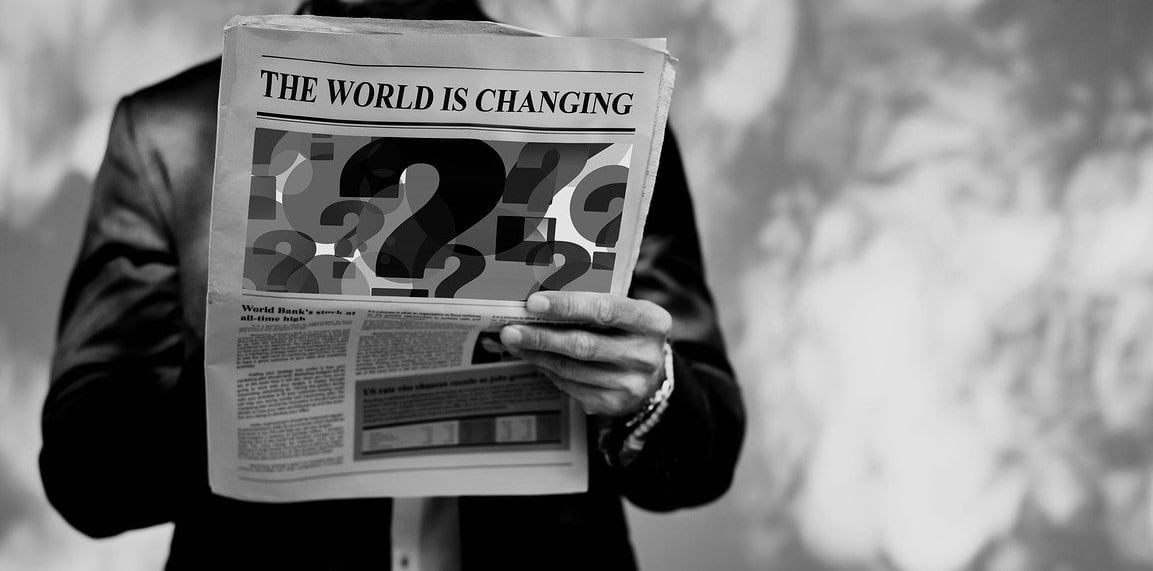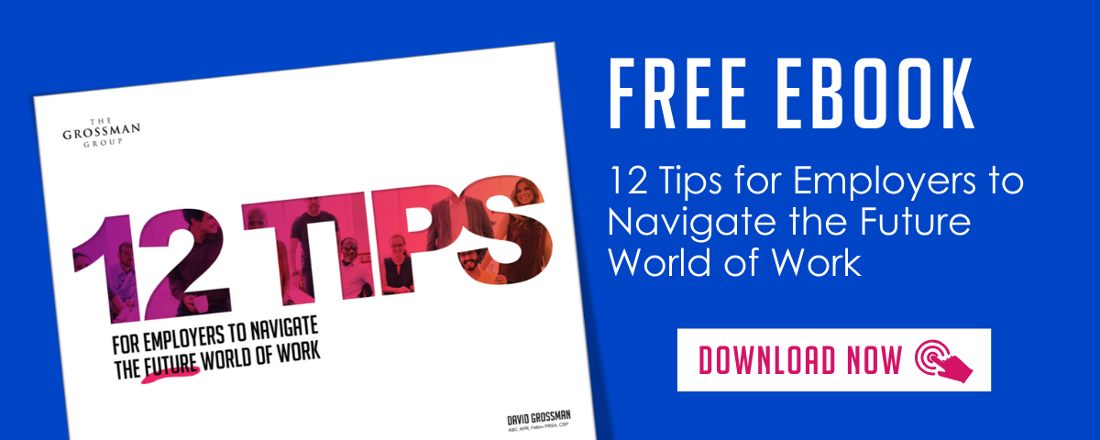June 8, 2020
2020 is Changing Our World in Lasting Ways – Guest Blogger Linda Kingman
Written by:
David Grossman

Even though we’re only halfway through the year, we can expect 2020 to go down in history as a year of tremendous challenges and changes, a year that shook our way of life, our ways of working, our family, business and social relationships and our attitudes toward institutions like healthcare and law enforcement.
The combination of the COVID-19 pandemic and the death of George Floyd at the hands of a Minneapolis police officer – and the civil unrest that followed – will have lasting effects on people’s attitudes, feelings and mindsets as well as their values and beliefs.
As leaders of teams, our mistake would be to assume that as soon as a COVID-19 vaccine is in place and widely available, as soon as George Floyd and Ahmaud Arbery and Breonna Taylor fade from our headlines, that things will go back to normal. They won’t.
Learning from History
Recently, I participated in the virtual Arthur W. Page Society Spring Seminar. Barney Wyld, Group Corporate Affairs Director for National Grid, was one of the speakers and he said something that stuck with me. Barney reminded us of the story of Winston Churchill and the elections of 1945. He talked about how, having inspired and led Great Britain through World War II, Churchill expected to receive the thanks of a grateful nation when the election was held just a few months after the end of the war. Instead, Churchill’s Conservatives were soundly defeated by Labor. Why? Perhaps because Churchill and his party failed to recognize that people changed during the war. What they wanted from their government and society after the war was different than what they wanted before the war. This led to lasting societal changes like the rise of the National Health Service, the Welfare State and the nationalization of the country’s energy, rail and aviation industries – all of which happened within three years!
So, what does this have to do with us as leaders of teams? Everything.
People are Affected Differently by What They’re Going Through
The people on our teams have almost certainly been changed by what they’ve been through in recent days, weeks and months. Many have adjusted to working from home and constant Zoom chats and have little desire to go back go the office. Others have been feeling isolated and can’t wait to be back in person with their colleagues. Those who have continued working on-site through COVID-19 may feel like second-class citizens because they don’t believe their safety is a high priority for their companies and they didn’t have the option of working from home.
People on your teams may have been infected with COVID-19 or lost family members or friends to the disease. They may be grieving over the loss of social connections or the way their lives used to be. They might be sad for the small business owners whose businesses have been affected by the stay-at-home orders or irritated at what they perceive as limitations on their personal freedoms.
Team members might be angry or frustrated by the ongoing racism in our society and the law enforcement response to protesters. Or they might be upset with the protesters or those who engaged in acts of vandalism.
Now more than ever, we can’t expect people not to be affected in their work by what is going on in the world around them. And the reality is that we all process events like those we’re experiencing now differently. One person’s sadness is another person’s rage. One person may feel conflicted while another is motivated to decisive action.
The seismic events we’ve all been through lately have changed us in lasting ways.

Helping Your Team Move Forward
How can we help our teams process what they’ve been through and move forward? A couple of thoughts:
- Look for signs of stress. Are members of your team more withdrawn than they used to be? Having trouble finishing assignments? Seem sad or angry? Observe your people closely and don’t hesitate to check in one-on-one. The question, “How are you?” has taken on a new and deeper meaning than it had six months ago.
- Make sure everyone knows about the resources to help them. This is a good time to remind people about the company Employee Assistance Program, counseling services available through their insurance and/or community programs that can help.
- Don’t assume. Remind yourself that opinions, mindsets, attitudes and feelings have likely changed so don’t assume that what people on your team might have previously thought still applies.
- Don’t shy away from difficult discussions as a team. Many of us tend to avoid conflict. But that also can mean we avoid the subjects most on people’s minds and hearts. Subjects they need to talk about. Get some tips from your HR team on how to structure and facilitate a conversation that tackles the difficult issues we’ve been dealing with as individuals and as a society in a respectful and productive way.
- Be flexible and caring. Recognize that individuals process challenges and change differently and need different kinds of support. Be as flexible as you can in meeting your team members where they are at – whether that means taking time for a conversation, supporting a day off to rest or just get away, creating a different work schedule so they can juggle things at home, etc. Just showing you care enough to help the individuals on your team figure out and get what they need will go a long way.
Hopefully, we will all begin to heal from the toll of events in the first half of this year. We can help advance the healing by caring for others and having open dialog to learn from one another. Then, our challenge is to convert our learning into action to change our own corners of the world for the better in ways that will last.
What actions will you take to advance lasting change?
—Linda Kingman
About Linda
 Linda is Senior Vice President of The Grossman Group where she delivers award-winning innovative and strategic communication solutions for clients that address their everyday and defining business challenges. Linda has worked with a wide range of clients including American Airlines, AveXis, Dow Chemical, Johnson & Johnson, Hyatt Hotels, Kaiser Permanente, NiSource, Tenneco, and others. Linda is a member of the Economic Club of Chicago and the Arthur W. Page Society.
Linda is Senior Vice President of The Grossman Group where she delivers award-winning innovative and strategic communication solutions for clients that address their everyday and defining business challenges. Linda has worked with a wide range of clients including American Airlines, AveXis, Dow Chemical, Johnson & Johnson, Hyatt Hotels, Kaiser Permanente, NiSource, Tenneco, and others. Linda is a member of the Economic Club of Chicago and the Arthur W. Page Society.
Click below to download your free copy of the eBook—12 Tips for Employers to Navigate the Future World of Work.
It’s filled with strategies for motivating and engaging employees through a dramatically changing work environment and offers stories of companies successfully managing through COVID-19 and other business challenges.
Other posts you might be interested in
View All Posts
Internal Communication
5 min read |
June 13, 2022
3 Unique Ways Leaders Can Prioritize During Change
Read More
Change Management
4 min read |
June 14, 2021
The Four Questions Leaders Must Answer During Any Change
Read More
Featured
3 min read |
November 7, 2023


Comments on this post